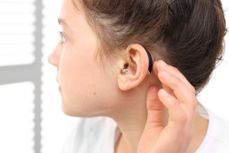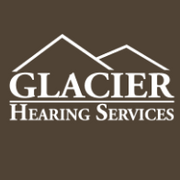What's the Difference Between Hearing Aids & Cochlear Implants?

For people with hearing loss, technology has made it possible for them to retain or regain their hearing abilities. These days, there are multiple tools on the market to help individuals observe stimuli and communicate with others, such as cochlear implants and hearing aids. If you’re not sure which tool will meet your needs, you can turn to an ear, nose, and throat doctor for a professional recommendation. Here’s how these options differ, and why your doctor might suggest one over the other.
Cochlear Implants
While they might look similar to hearing aids, cochlear implants feature two separate parts. The processor wraps around the back of the ear, while the receiver must be surgically implanted. This is because people who wear cochlear implants are unable to hear due to a missing link between the inner ear and the auditory nerve. Once implanted, the receiver fills this void by accepting sound signals and translating them to the nerve, which they’re then sent to the brain.
People with cochlear implants might need anywhere from six months to a year to learn how to use and understand the information being routed to their brain, which makes speech therapy helpful in some cases. While the received sounds might seem more robotic, cochlear implants allow for a more natural hearing experience since they act as a natural bridge for the body’s auditory senses.
Hearing Aids
 If you haven’t lost most or all of your hearing, you probably don’t need cochlear implants. They work by amplifying the sounds around you to a perceivable level.
If you haven’t lost most or all of your hearing, you probably don’t need cochlear implants. They work by amplifying the sounds around you to a perceivable level.
Hearing aids eliminate the need for implants and potential speech therapy, which makes them much less expensive and easier to transition to. In this case, the processor and receiver are combined into one piece that wraps around the ear, which makes them easy to take off, fine-tune, repair, and replace. Unless your hearing is so poor that amplification won’t help, your ear, nose, and throat doctor will probably recommend hearing aids.
If you’re hoping to get a professional opinion on your hearing needs, reach out to Glacier Ear Nose & Throat and Glacier Hearing Services. This Kalispell, MT, ear, nose, and throat doctor has over 30 years of experience treating patients of all ages. Whether you’re dealing with daily congestion or having trouble understanding your loved ones, this team will assess your needs as if you are part of the family. To learn more about their services, visit the website, or call (406) 752-8330 to make an appointment.
About the Business
Have a question? Ask the experts!
Send your question

